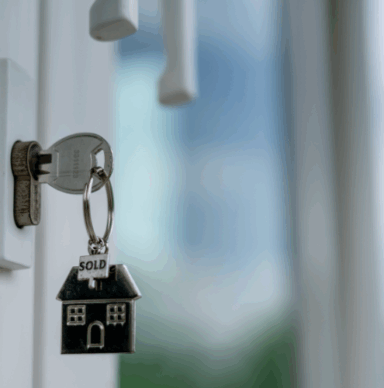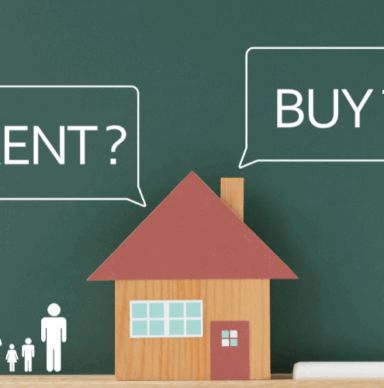Your credit report is one of the most important financial documents about you. It’s not just a number—it’s a comprehensive record that lenders, landlords, employers, and mortgage brokers use to make decisions about whether to work with you.
But here’s what surprises most people: you’ve probably never actually read your credit report.
Many Canadians know their credit score but have never seen the detailed document that generates that score. That’s a missed opportunity. Understanding what’s in your credit report, how to read it, and what information lenders are actually seeing is essential for financial literacy, especially if homeownership is in your future.
Let’s walk through exactly what appears on your credit report, what it all means, and how to use this knowledge to your advantage.
Want to understand your credit report and how it affects homeownership eligibility? Learn about rent-to-own qualification in our main FAQ
What Is a Credit Report (And Why It Matters)?
A credit report is an official, detailed record of your credit history compiled by major credit bureaus. It’s the foundational document that generates your credit score.
Credit Report vs Credit Score: Key Differences
| Aspect |
Credit Report |
Credit Score |
| What it is |
Detailed history document |
Single summary number |
| Length |
2-3 pages of detailed information |
One 3-digit number (300-900) |
| Who creates it |
Equifax, TransUnion (Canada) |
FICO (or bureau proprietary models) |
| What it shows |
Every account, payment, inquiry, negative item |
Overall creditworthiness ranking |
| Time period covered |
6+ years of history |
Based on entire history |
| Who uses it |
Lenders, landlords, employers |
Primarily lenders for quick assessment |
| Frequency updated |
Continuously as new info received |
Recalculated monthly |
| Cost |
Free once annually from each bureau |
Often free (paid monitoring services exist) |
Key insight: Your credit report is the raw data. Your credit score is the summary. To truly understand your creditworthiness, you need to understand both.
Learn about credit scores in our main FAQ
How Lenders and Landlords Actually Use Your Credit Report
When you apply for a mortgage, rental agreement, or credit in Ontario, here’s what happens behind the scenes:
The Credit Review Process
- You submit application (mortgage, rental, credit card, loan)
- Lender requests your report (hard inquiry recorded on your file)
- Lender receives 5 key sections (personal info, accounts, inquiries, derogatory marks, length of history)
- Lender analyzes your profile:
- Do you pay on time? (Payment history)
- How much debt are you carrying? (Utilization)
- Do you have different account types? (Credit mix)
- How long have you had credit? (Account age)
- How many recent credit applications? (Inquiries)
- Decision: Approve, approve with conditions, or deny
What Lenders Look For
Positive indicators on your report:
- ✅ Consistent on-time payments across all accounts
- ✅ Low balances relative to credit limits
- ✅ Mix of different credit types (credit cards, loans, mortgage)
- ✅ Long account history (shows stability)
- ✅ Few recent hard inquiries (shows you’re selective)
Red flags that appear on reports:
- ❌ Late payments (30+ days overdue)
- ❌ Collections accounts (unpaid debts sent to collections)
- ❌ Bankruptcies or judgments (severe legal actions)
- ❌ Foreclosures or repossessions
- ❌ Multiple recent hard inquiries (looks like credit-seeking)
- ❌ Maxed-out credit accounts (high utilization)
Ontario Mortgage Lenders Specifically
Most Ontario mortgage lenders:
- Review Equifax reports primarily
- Require minimum 680 credit score
- Look for 2+ years of stable payment history
- Assess your debt-to-income ratio
- Consider your down payment amount
If you don’t meet these criteria now, traditional mortgages may be unavailable, but that doesn’t mean homeownership is impossible. Learn about other alternatives in our main FAQ
What’s Actually On Your Credit Report: A Section-by-Section Breakdown
Your credit report contains five main sections. Understanding each one helps you know what lenders see.
SECTION 1: Personal Information
What appears:
- Full legal name (and any previous names/aliases)
- Date of birth
- Social Insurance Number (SIN)
- Current residential address
- Previous addresses (usually last 3 years)
- Current employer(s)
- Phone number(s)
What it’s used for: Identity verification and fraud detection. Lenders confirm this is actually YOU.
What to check for:
- ✅ Your name spelled correctly (exactly as on ID)
- ✅ Current address is accurate
- ✅ Date of birth is correct
- ❌ Addresses you don’t recognize (possible fraud indicator)
- ❌ Names/aliases you didn’t use (identity theft warning)
- ❌ Employers you didn’t work for
Note: Your SIN should only appear once on the report. Multiple SINs is a red flag.
SECTION 2: Credit Accounts (Your Credit History)
This is the largest and most important section. It lists every credit account you currently have or have ever had.
For each account, the report shows:
- Account type (credit card, auto loan, mortgage, line of credit, student loan, etc.)
- Name of the creditor (bank, credit card company, etc.)
- Date the account opened
- Credit limit or loan amount
- Current balance
- Payment status (Current, Late, etc.)
- Payment history (usually past 24 months shown month-by-month)
Example account entry:
| Field |
Example |
What It Tells the Lender |
| Account Type |
Visa Credit Card |
You have revolving credit experience |
| Creditor |
Royal Bank of Canada |
RBC is your creditor |
| Opened |
January 2018 |
Account is 6+ years old (good) |
| Limit |
$5,000 |
Your approved credit limit |
| Balance |
$1,200 |
You owe $1,200 (24% utilization = good) |
| Status |
Current |
All payments on time ✅ |
| Payment History |
CCCCCCC |
“C” = Current/on-time for 7 straight months |
What to check for:
- ✅ All accounts listed ARE accounts YOU opened
- ✅ Balances match your knowledge
- ✅ Payment status shows “Current” for accounts you’re paying
- ❌ Accounts you don’t recognize (fraud/identity theft indicator)
- ❌ Incorrect balances (creditor reporting error)
- ❌ Payment status marked “Late” when you paid on time (error)
- ❌ Accounts listed as still open that you closed
SECTION 3: Credit Inquiries
Every time you apply for credit, an “inquiry” is recorded. This section shows who has looked at your report.
Two types of inquiries:
Hard Inquiries (Recorded on Report, Affects Score):
- Occur when you formally apply for credit
- Initiated by lenders when you apply for: credit cards, mortgages, auto loans, lines of credit
- Each one: -5 to -10 points temporarily
- Visible to other lenders
Soft Inquiries (Not Recorded, No Score Impact):
- When you check your own score
- Employer background checks
- Insurance company checks
- Existing creditor reviews
- NOT visible to other lenders
What appears on report: Only hard inquiries (soft inquiries are private)
Example:
| Date |
Type |
Lender |
Why |
| June 2024 |
Hard |
TD Bank |
Credit card application |
| March 2024 |
Hard |
TD Finance |
Auto loan application* |
| March 2024 |
Hard |
RBC Finance |
Auto loan shopping* |
(Note: *The two auto loan inquiries in March, if within 14 days, count as ONE inquiry for scoring purposes)
What to check for:
- ✅ All inquiries are ones YOU authorized
- ❌ Hard inquiries you didn’t apply for (fraud indicator)
- ❌ Unauthorized inquiries from lenders you never contacted
SECTION 4: Public Records and Collections
This section contains serious negative items. Items here have major impact on your score and borrowing ability.
Collections Accounts:
- Debts sent to collection agencies due to non-payment
- Shows: Collection agency name, amount owed, when debt was charged off
- Indicates: You didn’t pay and creditor gave up collecting directly
- Impact: Severe negative (-50 to -150 points)
Judgments:
- Legal judgments against you for unpaid debts
- Shows: Creditor sued you and won
- Impact: Very severe negative
Liens (Tax Liens, Wage Garnishment):
- Government or creditor claim on your assets
- Shows: Unpaid taxes or serious debt obligations
- Impact: Very severe negative
Bankruptcies:
- Legal bankruptcy filing (consumer proposal or Chapter-style bankruptcy)
- Shows: Date filed, type of bankruptcy, discharge status
- Impact: Extremely severe (most damaging item possible)
- Duration: Stays on report 6-7 years from discharge
Foreclosures:
- Property repossession due to mortgage non-payment
- Shows: Property address, date initiated, outcome
- Impact: Extremely severe
What to check for:
- ✅ Verify any items you recognize are accurate
- ❌ Items that aren’t yours (fraud/identity theft)
- ❌ Items past 7 years old (should be removed by law in Canada)
- ❌ Items marked as active that should be resolved
How to Get Your Free Credit Report in Ontario
You’re legally entitled to one free credit report per year from each bureau in Canada.
Step-by-Step Process: Online (Fastest)
1. Visit Equifax or TransUnion
- Equifax: equifax.ca
- TransUnion: transunion.ca
2. Click “Get Your Credit Report” (or similar)
3. Provide Personal Information
- Name, address, SIN, date of birth
4. Verify Your Identity
- Answer security questions, or
- SIN verification through CRA (Canada Revenue Agency)
5. Receive Your Report
- Instant access (viewable/downloadable online)
- PDF format you can save and print
Timing: 15 minutes total
Alternative: By Mail (More Secure)
1. Download request form from bureau website
2. Print and mail to bureau with proof of identity:
- Driver’s license copy
- Utility bill
- Government-issued ID
3. Receive by mail within 10 business days
Better for: Privacy-conscious individuals, those without online access
Which Bureau First?
- Check Equifax FIRST (Ontario lenders use this primarily)
- Then check TransUnion (to compare and catch errors)
- Different bureaus have different information = both important
Learn why scores differ between bureaus in our main FAQ
How to Read Your Credit Report: Key Codes and Examples
Payment Status Codes Explained
Your report shows each month’s payment status using codes. Here’s the complete reference:
| Code |
Meaning |
What It Indicates |
Score Impact |
| C |
Current |
Payment made on time |
✅ None (positive) |
| I |
In Arrears |
Payment is late |
❌ Negative |
| 30 |
30 days late |
Overdue by 30+ days |
❌ -50 to -100 points |
| 60 |
60 days late |
Overdue by 60+ days |
❌ -50 to -150 points |
| 90 |
90+ days late |
Overdue by 90+ days |
❌ -100+ points |
| C/O |
Charge Off |
Account written off as loss |
❌ Severe (-150+ points) |
| CA |
Collection Agency |
Sent to collections |
❌ Severe (-150+ points) |
| R |
Repossession |
Asset repossessed |
❌ Severe (-200+ points) |
How to interpret:
- All “C”s = healthy payment history
- Mix of “C”s with old “30”s = past problems (less damaging now)
- Recent “30”s or higher codes = serious current issues
Reading Your Payment History Grid
Most reports show your last 24 months of payment history in a grid:
Example:
Account: Visa Card
Opened: Jan 2018
Limit: $5,000
Balance: $1,200
PAYMENT HISTORY (Most Recent = Right)
Jan Feb Mar Apr May Jun Jul Aug Sep Oct Nov Dec
C C C C C C C C C C C C
(All payments current/on time for 12 months shown)
How to interpret:
- All “C” = Perfect payment history (excellent)
- Mostly “C” with one “30” from 6+ months ago = Good history with one old mistake
- Multiple “30”s recently = Concerning pattern
- Mix of “C” and “I” codes = Ongoing problems
Reading Account Balances
Understand what balances mean:
For Credit Cards (Revolving Credit):
- Balance shown = total amount you owe
- Compare to limit = your utilization percentage
- Example: $1,200 balance / $5,000 limit = 24% utilization (good)
For Loans (Installment Credit):
- Balance shown = remaining amount owed
- Example: $8,000 balance / $20,000 original loan = halfway paid (normal)
Frequently Asked Questions
Q: How often should I check my credit report?
Recommended schedule:
- Minimum: Once per year (use your free annual report)
- Better: Every 6 months (one from each bureau, staggered)
- Best: Quarterly (or before major financial decisions)
Why check regularly?
- Catch errors early (before they hurt you)
- Monitor for fraud or identity theft
- Verify information is accurate
- Track changes over time
During rent-to-own: Check quarterly to see your payment history building and improving. You should see consistent “Current” status building over time.
Learn how RTO builds credit in our main FAQ
Q: I found an error on my credit report. What do I do?
The dispute process in Ontario (30-day timeline):
Step 1: Document the error
- Note which item is incorrect
- Gather supporting documentation
- Screenshot or photo evidence
- Calculate impact if relevant
Step 2: Contact the bureau in writing
- Equifax: di*****@*****ax.ca or mail
- TransUnion: https://www.transunion.ca/customer-support/contact-us or mail
Include:
- Your name, SIN, date of birth
- Specific error (account number, date, amount)
- What the error is
- Supporting documentation
Step 3: Bureau investigates (within 30 days)
- Bureau contacts the creditor for verification
- Creditor provides documentation
- Bureau reviews evidence
Step 4: Decision
- If error confirmed: Item corrected or removed
- If verified as correct: Item stays but bureau may note your dispute
- You receive written decision
Step 5: If unsatisfied
- Add written statement to your report explaining your position
- Consider consulting legal advice for major errors
Common errors worth disputing:
- Account you don’t recognize (possible fraud)
- Wrong balance showing (reporting error)
- Duplicate account listings (creditor reporting twice)
- Incorrect payment status (marked late when paid on time)
- Account marked as yours but it’s not (fraud/identity theft)
Q: How long do negative items stay on my credit report?
Canadian credit reporting timelines:
| Item Type |
How Long It Stays |
| Late payments |
6-7 years from the date of payment |
| Collections accounts |
6-7 years from charge-off date |
| Bankruptcy |
6-7 years from discharge date |
| Judgments/Liens |
7+ years (varies by province) |
| Foreclosure/Repossession |
6-7 years from event |
| Hard inquiries |
3 years |
Important notes:
- Items lose impact as they age (2-year-old late payment hurts less than recent one)
- After the legal timeframe, Items must be removed
- You can request removal of expired items
Q: Will checking my own credit report hurt my score?
No. Checking your own report is a “soft inquiry” and has absolutely zero impact on your credit score.
You can check:
- As often as you want
- Without any negative consequences
- In fact, checking regularly is RECOMMENDED for fraud prevention
Key difference:
- Soft inquiry (you checking your own report) = No score impact
- Hard inquiry (lender checking for credit application) = -5 to -10 points temporary
There’s no downside to monitoring your own credit report.
Q: Why is my information showing at an address I don’t recognize?
This could mean:
Legitimate reasons:
- Previous address still on file (bureaus keep 3-year history)
- Data processing delay (old address not yet removed)
Fraud indicators:
- Address is somewhere you’ve never lived
- Multiple unfamiliar addresses
- Address associated with inquiries you don’t recognize
What to do:
- If it’s an old address: Note it but no action needed
- If it’s unfamiliar: Investigate and potentially initiate a dispute
Your Action Plan: What to Do This Week
Step 1: Get Your Free Reports (15 minutes)
- Visit Equifax.ca or TransUnion.ca
- Request your free annual report(s)
- Download when received
- Note: You can get both simultaneously or stagger them
Step 2: Read Section by Section (30 minutes)
- Check Personal Information accuracy
- Verify all Credit Accounts are yours
- Review all Hard Inquiries are authorized
- Note any Collections or Public Records
- Examine Payment History codes
Step 3: Identify Issues (15 minutes)
- List any errors (wrong balance, wrong account, etc.)
- Flag any unauthorized inquiries
- Note any accounts you don’t recognize
- Mark any fraud indicators
Step 4: Take Action (Ongoing)
- Dispute any errors immediately (30-day window)
- Monitor for identity theft
- Plan improvement strategy if needed
- Consider next steps for homeownership
Ready to Understand Your Credit Profile?
Your credit report is a powerful document. Understanding what’s in it, what lenders see, and how to read it puts you in control of your financial future.
Once you know what your report says, you can make informed decisions about improving your credit or pursuing homeownership through rent-to-own.


